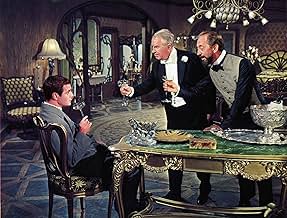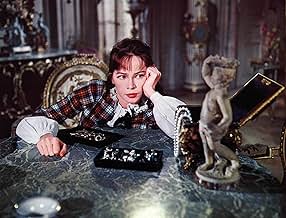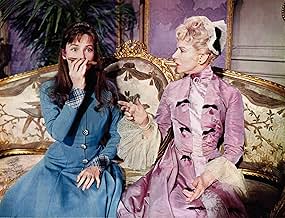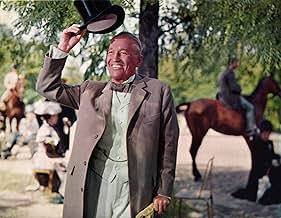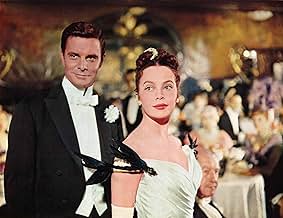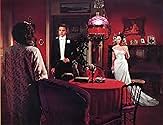Weary of the conventions of Parisian society, a rich playboy and a youthful courtesan-in-training enjoy a platonic friendship which may not stay platonic for long.Weary of the conventions of Parisian society, a rich playboy and a youthful courtesan-in-training enjoy a platonic friendship which may not stay platonic for long.Weary of the conventions of Parisian society, a rich playboy and a youthful courtesan-in-training enjoy a platonic friendship which may not stay platonic for long.
- Won 9 Oscars
- 22 wins & 9 nominations total
- Girl at Maxim's
- (uncredited)
- Waiter at "Palais de Glace"
- (uncredited)
- A boy at Jardins des Tuileries
- (uncredited)
- Harlequin
- (uncredited)
- Gentleman in Park
- (uncredited)
- Maitre d'Hotel Maxim's
- (uncredited)
- Showgirl
- (uncredited)
- Restaurant Patron
- (uncredited)
- Gaston's Private Secretary
- (uncredited)
- Girl on Horseback at Pré Catelan
- (uncredited)
- Directors
- Writers
- All cast & crew
- Production, box office & more at IMDbPro
Best Picture Winners by Year
Best Picture Winners by Year
Storyline
Did you know
- TriviaWhen Alan Jay Lerner met Leslie Caron in London to discuss the film with her, he was surprised to discover that Caron, who was of French birth, had become so immersed in the English culture that she had lost her French accent.
- GoofsDuring Gaston's song by the pond thinking of Gigi, there is a fence in the pond forcing the swans to stay in close background. The swans, obviously confused yet undeterred, keep swimming into the fence attempting to get to the swan in deep background on the other side of the pond.
- Quotes
Aunt Alicia: Love, my dear Gigi, is a thing of beauty like a work of art, and like a work of art it is created by artists. The greater the artist the greater the art. And what makes an artist?
Gigi: Cigars and jewelry?
Aunt Alicia: Gigi, you're from another planet.
- Alternate versionsIn some prints shown on television, we see still photos of Leslie Caron part of the time during the song "Gigi", instead of seeing Louis Jourdan singing. (This occurs after the verse and first chorus, when the orchestra plays the song while Jourdan only exclaims "Gigi!") As shown currently, we see Jourdan singing throughout the whole song, as in the theatrical release.
- ConnectionsEdited into Histoire(s) du cinéma: Une histoire seule (1989)
- SoundtracksThank Heaven for Little Girls
(uncredited)
Lyrics by Alan Jay Lerner
Music by Frederick Loewe
Performed by Maurice Chevalier
But let's face it, this is Americanized Collette. She celebrated the deals and compromises within a sexist order that allowed a lucky few high-class prostitutes to become well-to-do, independent women in fin-de-siecle Paris (and a lot of others to at least make some kind of living). She empowered women, at a time when there just weren't many other opportunities for them to establish real independence (our current categories of PC and non-PC wouldn't have meant much then). It wasn't always pretty, but there was reality in her writing about relations between the sexes that hasn't lost its relevance.
Of course, this had to be soft-pedalled for the American audience - hence the ending, which conforms nicely with middle-class morality on this side of the Atlantic. This is the only "politically" unsatisfactory thing about the movie, however. And it remains superior - both "politically" and as a film - to My Fair Lady, where Eliza is implied to return and submit herself to Rex Harrison at the end, whereas Gigi at least implies that it's Gaston rather than Gigi who is going to have to change his ways.
My only other gripe: Why no dancing from Leslie - and from Vincente Minelli, that peerless director of dance sequences? I guess Lerner and Lowe must have been more in control of this one, and weren't of a mind for rug-cutting. Too bad - there really isn't nearly enough of Leslie dancing on film as it is!
Details
Box office
- Budget
- $3,319,355 (estimated)
- Runtime1 hour 55 minutes
- Sound mix
- Aspect ratio
- 2.35 : 1
Contribute to this page



